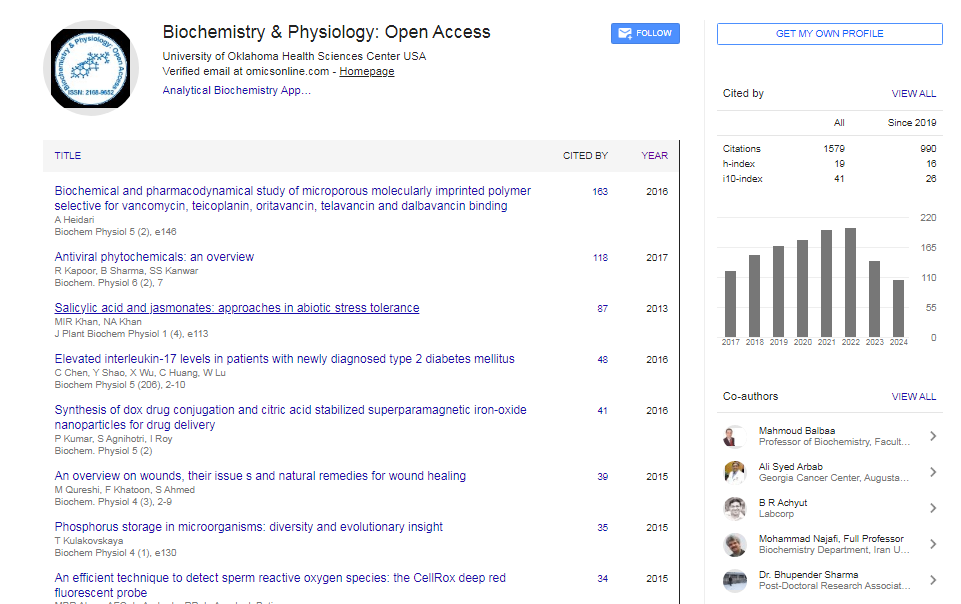Research Article
Lead-Induced Reduction In Body And Kidney Weight Of Wistar Albino Rats Ameliorated By Ginkgo Biloba Extract (EGb 761)
| Zaheer Amjad1, Muhammad Zia Iqbal2* and Amir Ali Shoro3 | |
| 1Department of Anatomy, Dow University of Health Sciences, Karachi, Pakistan | |
| 2Department of Anatomy, Suliman Alrajhi Colleges, Bukaryiah, Kingdom of Saudi Arabia | |
| 3Department of Anatomy, Liaquat National Medical College, Karachi, Pakistan | |
| *Corresponding Author : | Muhammad Zia Iqbal Department of Anatomy, Suliman Alrajhi Colleges Bukaryiah, Kingdom of Saudi Arabia Tel: 96653688772 Fax: 96663352601 Email: z.iqbal@sr.edu.sa |
| Received July 07, 2013; Accepted July 23, 2013; Published July 26, 2013 | |
| Citation: Amjad Z, Iqbal MZ, Shoro AA (2013) Lead-Induced Reduction in Body and Kidney Weight of Wistar Albino Rats Ameliorated by Ginkgo biloba Extract (EGb 761). Biochem Physiol 2:113. doi:10.4172/2168-9652.1000113 | |
| Copyright: © 2013 Amjad Z, et al. This is an open-access article distributed under the terms of the Creative Commons Attribution License, which permits unrestricted use, distribution, and reproduction in any medium, provided the original author and source are credited. | |
Abstract
Objective To observe the effects of lead acetate on body and kidney weight of Wistar albino rats and the protective role of EGb 761 on weight changes. 1.2 Methodology One hundred and twenty young male Wistar albino rats were randomly selected and divided into three groups, A, B and C, comprising of 40 animals. Each group was further divided into four subgroups according to the duration of treatment, i.e., one, two, four and six weeks. Group A animals (control) were given 0.5 ml normal saline intraperitoneally (IP) daily. Group B animals received lead acetate 8mg/kg body weight IP daily, whereas Group C animals received 100mg/kg body weight of EGb 761 through gavage and 8mg/kg body weight lead acetate through IP. Initial and final body weights were taken and recorded. After sacrificing the animals, the kidneys were retrieved, dried and weighed using the Sartorius balance. 1.3 Results Group B animals showed overall decrease in the body weight, which was non-significant (p>0.05) after one week and became highly significant (p<0.001) after two, four and six weeks, when compared with the control group animals. Group C animals showed increase in the body weight which was less as compared to A group animals, being non-significant (p>0.05) after one and two weeks, while became significant (p<0.01) after four weeks and highly significant (p<0.001) after six weeks. There was a non-significant (p>0.05) decrease in kidney weight of group B rats after one week whereas the decrease was highly significant (p<0.001) after subsequent periods of treatment. When relative weight of the kidneys in group B animals was compared with A and C groups, it was significantly increased (p<0.001) after one, two and four weeks, whereas the change was non-significant (p>0.05) after six weeks of treatment. 1.4 Conclusion EGb 761 effectively ameliorated the lead-induced changes in body and kidneys weight of the albino rats.

